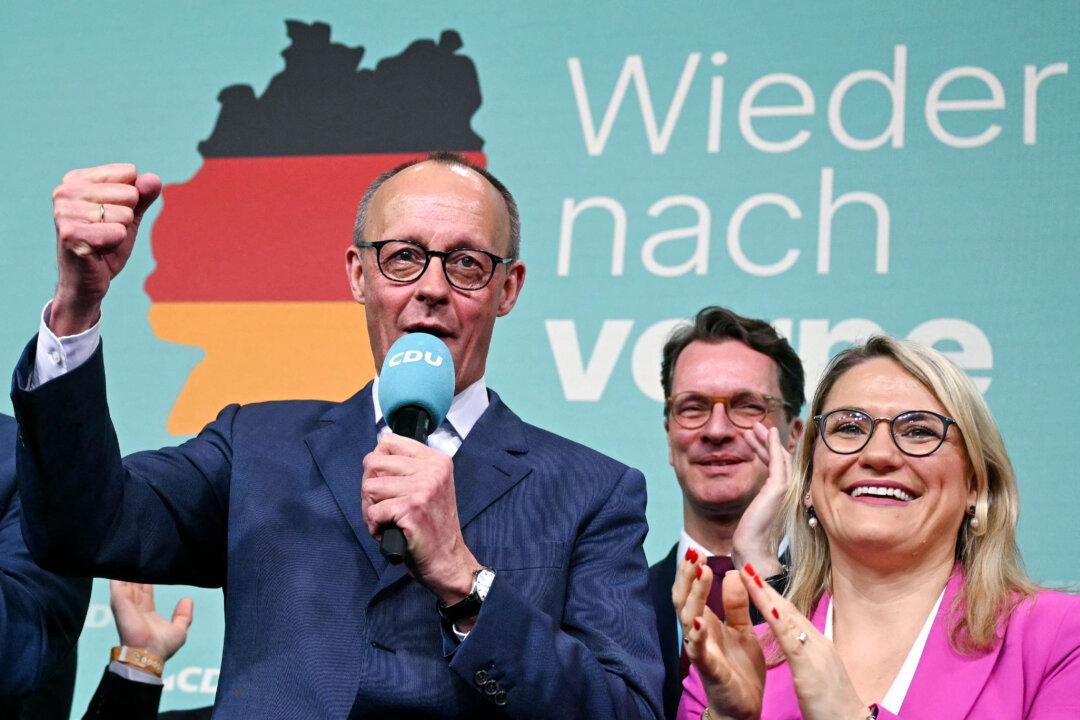Germany’s center-right Christian Democratic Union (CDU) has emerged as the winner of the federal election, while the right-wing Alternative for Germany (AfD) has placed second with its best-ever result, according to preliminary results.
Led by Friedrich Merz, the Christian Democratic Union (CDU) capitalized on widespread discontent over inflation, rising energy costs, and immigration policies to get 22.5 percent of the vote, followed by Alternative for Germany (AfD) with 20.8 percent, according to preliminary results released by the German election authority. The CDU is in a conservative alliance with the Christian Social Union (CSU), which received six percent of the vote.




